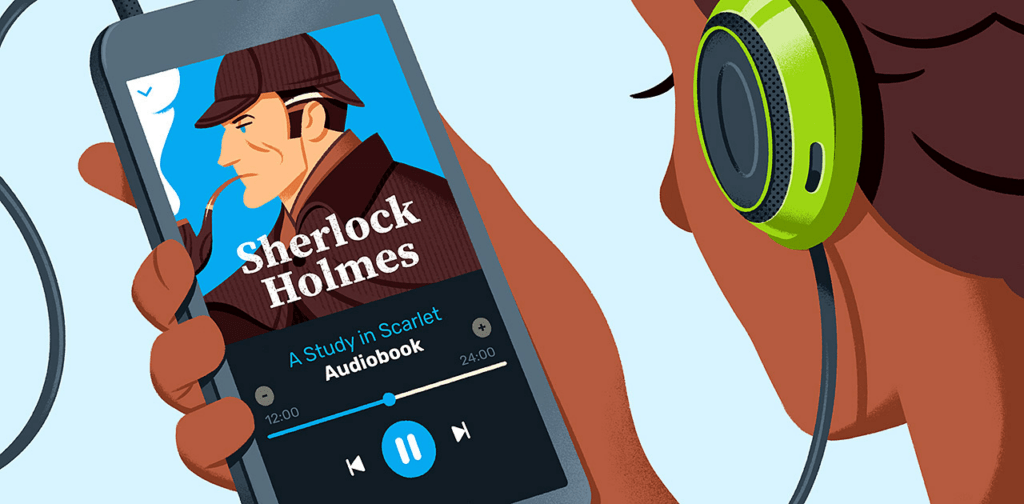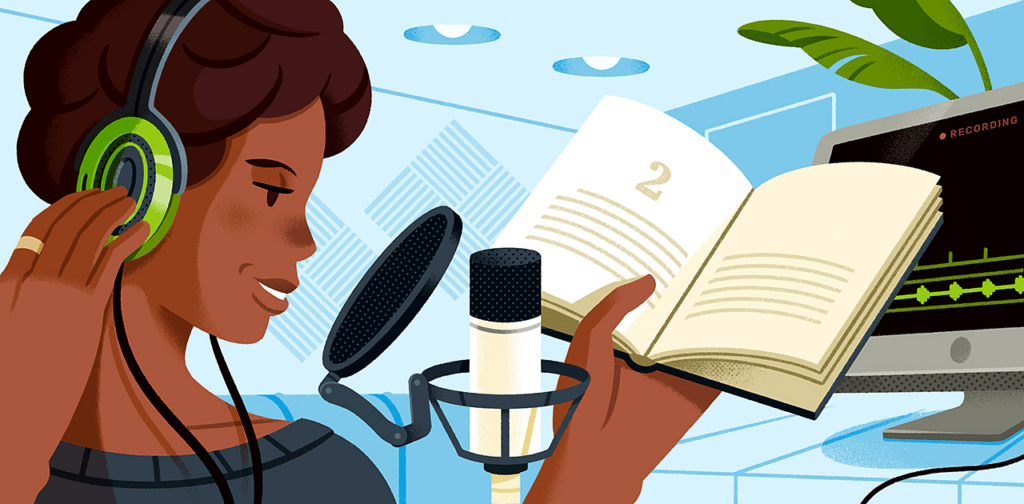Audiobooks are a fantastic way to consume literature on the go, and their popularity has been steadily increasing over the years. But have you ever stopped to consider how much work goes into creating these recordings, how to price your Audiobook, and how that work should be fairly compensated?
Pricing an audiobook appropriately is crucial for both the author and the narrator as it can make or break their profit margins. It’s essential to take into account all of the costs involved in producing an audiobook before deciding on a price.
In addition, setting the correct price for your audiobooks is also critical from a consumer’s perspective. Listeners want to feel like they are getting value for their money, so setting prices that are too high can turn potential customers away.
Similarly, pricing an audiobook too low can undermine its perceived value and suggest lower quality production values. In this article, we will explore some important factors that should be considered when determining how much to charge for an audiobook.
Befor you go, check out our Free ai narrator

How to Price Your Audiobook
The Factors That Should Be Considered When Determining The Price
Length Of The Audiobook
The first factor you need to consider when pricing your audiobook is its length. Longer books require more time and effort to produce than shorter ones; thus, it makes sense that longer books cost more. This may seem like common sense but bear with me for a moment – ideally authors should aim for publishing books with lengths between 10-15 hours as anything longer than 20 hours will result in recording fatigue which may lead to lackluster performances.
Comparison With Other Audiobooks
The next thing you need to consider is comparing your book with others in the same genre and length range. In other words: know your competition!
If similar books on Audible are selling at a particular range or several narrators within your niche charge around $X per finished hour, you may need to adjust your pricing accordingly. Neglecting this practice could result in overpricing or undervaluing your project, thereby missing the sweet spot that’s a perfect balance between profit and affordability.
The Amount Of Time And Effort Required To Record And Edit The Audiobook
The amount of time and effort required to record an audiobook is often underestimated. It’s not as simple as sitting down in front of a microphone and reading from a script. Recording an audiobook requires intense focus, attention to detail, and extensive editing to ensure a final product that flows seamlessly.
When pricing your audiobook, you should factor in the amount of time it takes for narration, sound effects (if applicable), music curation (if applicable), post-production editing as well as mastering the final audio file for delivery. With these factors in mind, it’s safe to say that producing an audiobook is no easy feat nor should it be priced cheaply.
Production Quality
Audiobooks need to be produced at high standards because listeners have high expectations when it comes to audio performance quality. You can’t expect consumers to pay premium prices for poor production quality. Some things listeners look out for include clean recordings without any background noises or hums; clear pronunciation; pacing that isn’t rushed or too slow; choosing music wisely; skillful sound effects use where necessary among others – all which require more creativity than most would think.

The Cost Involved In Hiring Professionals For Recording, Editing, And Producing An Audiobook
But most importantly: cost! Audiobooks are not cheap projects because they require professionals who have specialized skills such as narrators with unique accents or voice acting talent who can bring life into each character they portray during recording sessions.
These professionals may charge hundreds of dollars per hour depending on their experience level. Additionally, the cost of renting a recording studio and equipment, paying for post-production editing software and processing power as well as any other overhead costs should be considered when deciding on a price for your audiobook.
Factors to Consider When Pricing an Audiobook
As an audiobook producer, there are several factors that you need to consider when pricing your audiobooks. These factors include the length of the audiobook, comparison with other audiobooks in the same genre and length, the amount of time and effort required to record and edit the audiobook, production quality, the quality of narration, sound effects, and music used in production, the cost involved in hiring professionals for recording, editing and producing an audiobook. Market demand is also a crucial factor that determines how much you should charge for your audiobooks.
The length of your audiobook is one of the most critical considerations when determining its price. Longer books will require more time and resources to complete than shorter ones.
Additionally, longer books can be expected to attract a higher price point than shorter ones as listeners will want more value out of their investment. Audiobooks that fall within a specific genre or category with similar lengths should also be compared before deciding on pricing.
By doing so., producers can ensure they are not undercutting themselves by pricing their work too cheaply or overcharging consumers who may opt for cheaper offerings from competitors. The amount of time and effort required to record and edit an audiobook is another crucial factor when determining its price point.
Narrators must put in countless hours recording every word while editors painstakingly comb through each file looking for errors or inconsistencies. In addition to this labor-intensive work comes equipment costs such as studio rental fees or purchasing specialized software or hardware; all these expenses add up quickly!

Behind The Scenes
Behind The Scenes delves into what goes on behind creating a successful Audiobook production; highlighting various costs involved that may not be immediately apparent such as studio rental fees or equipment purchases. Behind the scenes, an audiobook production requires a lot of work and resources. The process begins with hiring qualified professionals such as narrators and sound engineers, followed by recording and editing the audiobook.
Once everything is done, there is also the cost of distribution. For instance, distributing your audiobook through platforms like Audible or Apple Books require payment of fees to these platforms.
Additionally, there are other costs that producers may need to incur such as promotional materials or advertising campaigns to get their work out there. All these expenses can add up quickly, which is why it’s so important for producers to price their audiobooks correctly.
The Value Proposition
The Value Proposition highlights how pricing can impact perceived value for listeners; offering insights on how to strike a balance between pricing competitively while still maintaining a high level of quality. Pricing plays a crucial role in creating an optimized value proposition for your target audience.
If you price too high compared to competitors with similar offerings, many potential buyers will go elsewhere.For this reason, it’s essential that you look at your competition’s prices and strike a balance between being competitive while still maintaining quality standards. Another way of creating value for listeners is by offering discounts or bundle deals when purchasing several titles at once; this creates a sense of value while still ensuring that you have priced each title fairly.
The Psychology Of Pricing
Pricing psychology delves into the complex reasons why consumers buy certain products at specific prices; offering insights on how producers can leverage these insights to create more appealing offers. When it comes down to purchasing decisions made by consumers regarding any product or service – including Audiobooks – price psychology plays a significant role in shaping consumer behavior. Understanding the psychological factors behind pricing – such as anchoring effect or decoy pricing – can help producers to create more appealing offers.
For example, decoy pricing can be leveraged by adding an audiobook at a much higher price point than the rest of your offerings. This strategy works by making other titles appear cheaper in comparison with a high-priced decoy title as it creates an anchoring effect.
Conclusion
Pricing audiobooks is not a straightforward task. Numerous factors must be considered before settling on a final price point that can attract listeners and still yield profits for the producer or publisher. By incorporating the insights offered in this article into their production, producers and publishers have a better chance of creating successful audiobooks with optimal pricing strategies.
While there is no one-size-fits-all solution when it comes to setting prices for audiobooks, careful consideration of various factors such as production quality, competition analysis, length of audiobook, and market demand will get you closer to finding the right price point for your work. Ultimately, striking a balance between affordability and value will help ensure long-term success as both listener satisfaction and profitability are critical components in any successful business venture.
